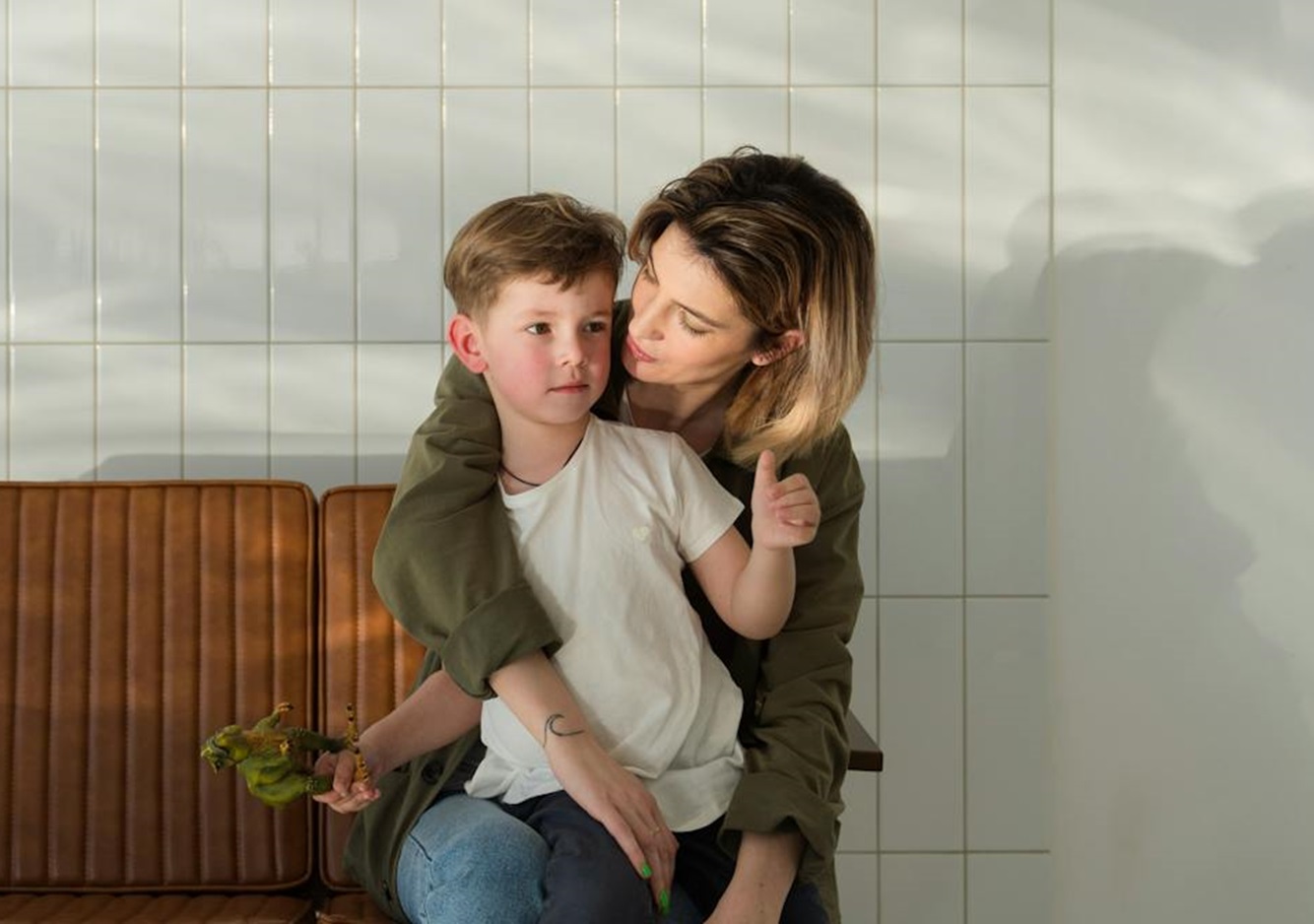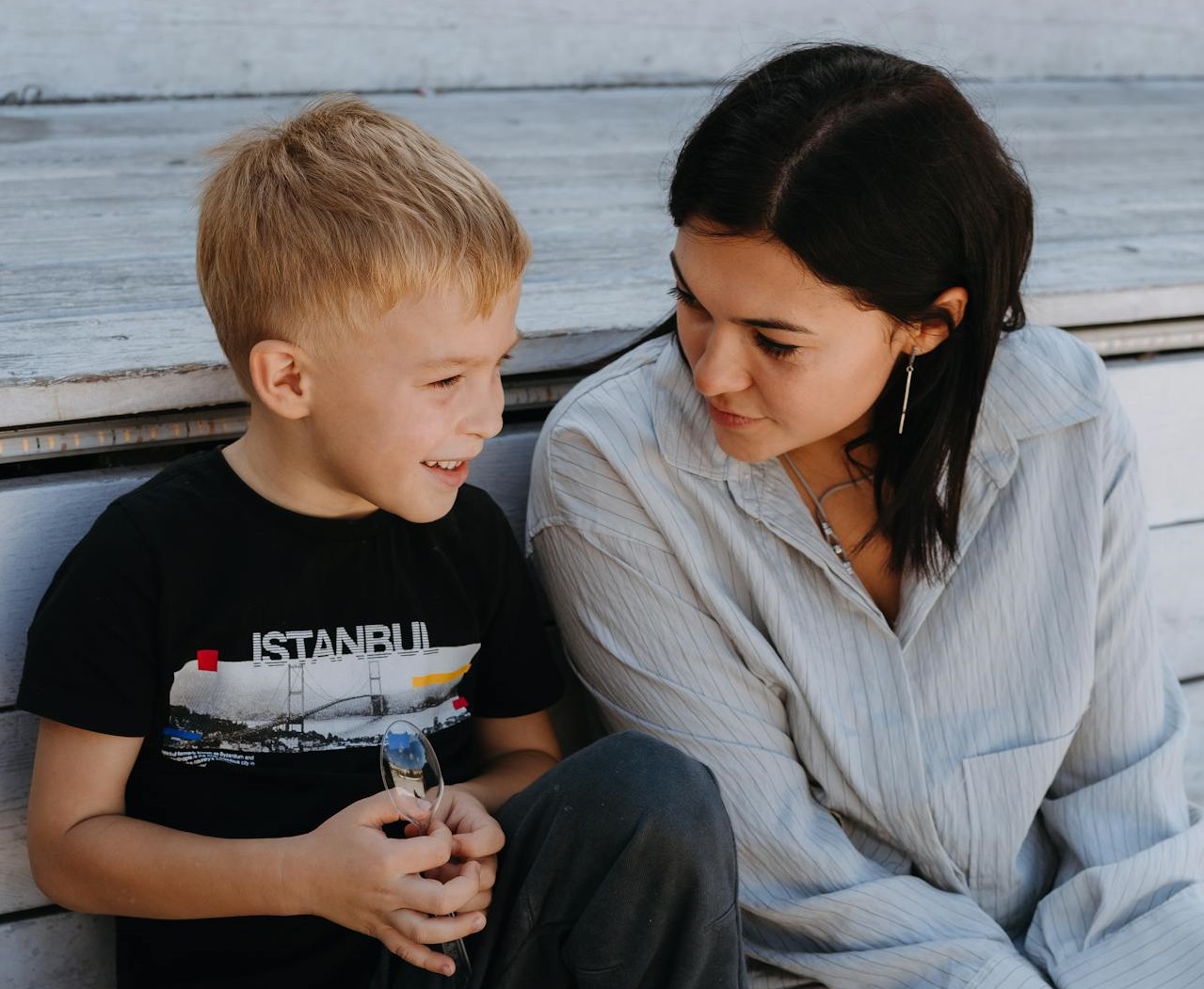Gentle parenting vs. traditional parenting
When it comes to parenting styles, there is a huge generational gap. As times have changed, so has the consensus on what is best for a child's development.

GENTLE PARENTING: Empathetic communication
Gentle parenting is all about understanding and acknowledging a child's emotions. While being empathetic can help create a strong emotional bond between parent and child, some critics believe this can "soften" the child, since letting the child let loose with their feelings may prevent them from learning to control their emotions properly.
TRADITIONAL PARENTING: Authoritative communication
In contrast, authoritative communication focuses on giving commands and expecting obedience without much input from the child. While it can set clear boundaries and teach limits, it may lack an emotional connection, leading to tensions in the parent-child dynamic.
GENTLE PARENTING: Natural consequences
With gentle parenting, natural consequences help children learn from their actions. For example, if a child doesn't want to wear a coat, they might feel cold and learn the value of wearing one. This approach lets the child learn from the consequences of his or her own decisions, but it may lack sufficient guidance that is needed in certain situations.
TRADITIONAL PARENTING: Strict consequences
Conversely, traditional parenting involves strict consequences for rule-breaking, such as time-outs or losing privileges like watching TV. This approach aims to teach discipline and the importance of being obedient, but it may lead children to prioritize avoiding punishment over understanding the rules' purpose.
GENTLE PARENTING: Non-punitive discipline
Gentle parenting involves disciplining children without penalizing them. Parents address misbehaviors by talking with them instead of scolding them. This is done in favor of providing a nurturing atmosphere for kids to learn and grow without fear. Critics of this method are concerned that it may spoil the child if they are not punished for their bad deeds.
TRADITIONAL PARENTING: Punitive discipline
Traditional parenting, on the other hand, relies on punitive discipline like time-outs, spanking, and withholding privileges to address misbehaviors. The goal is to link negative behaviors to adverse outcomes. While it may be effective for immediate compliance, this approach may breed fear or animosity in children and fail to teach them the underlying principles of good behavior.
GENTLE PARENTING: Respect each other
In gentle parenting, mutual respect between parents and children creates a collaborative environment. Open dialogue is encouraged and both viewpoints are valued.. Children feel heard and respected, boosting self-esteem and understanding. However, confusion over power dynamics may cause kids to be combative toward their parents more often.
TRADITIONAL PARENTING: Respect for authority
In traditional parenting, there are clear boundaries and rules for respecting authority. This helps kids learn to follow rules and obey their superiors, which creates harmony. However, it can also limit open communication between parent and child, leading to feelings of being unappreciated and ultimately, resentment.
GENTLE PARENTING: Emotional control
Gentle parenting teaches children how to control their emotions through parental guidance. This approach helps them develop their emotional intelligence and build strong parent-child bonds, even though parents may struggle to remain patient and composed during their child's intense fits of emotion.
TRADITIONAL PARENTING: Behavioral control
Traditional parenting, on the other hand, focuses on controlling children's behavior with rules and discipline. Parents set strict boundaries and consequences to create a consistent environment. While effective in correcting behavior, this approach may not address the underlying emotions driving the actions, causing children to follow rules out of fear rather than understanding.
GENTLE PARENTING: Play-based learning
Play-based learning in gentle parenting encourages children to learn through play activities, prioritizing joy and creativity to develop problem-solving skills. It allows children to learn at their own pace and follow their interests—but there are concerns about its impact on academic abilities and readiness for formal education.
TRADITIONAL PARENTING: Academic-based learning
Parents with traditional values prioritize structured education and academic success for their children, focusing on core subjects like reading, writing, and math through formal lessons. While this approach can lead to academic achievement, it may also create stress and pressure, potentially causing burnout and a dislike for learning.
GENTLE PARENTING: Low-expectation achievement
Gentle parenting allows children to learn freely without pressure, helping them build a passion for learning while reducing anxiety. However, some worry it may not challenge children enough or prepare them for competitive environments, future academic or career expectations.
TRADITIONAL PARENTING: High-expectation achievement
Traditional parenting is more focused on setting high expectations for children to motivate them to succeed. This can inspire them to work hard and succeed in school and their extracurriculars. However, it can also lead to stress and feelings of burnout or failure if the goals seem unattainable.
GENTLE PARENTING: Flexible routines
In gentle parenting, flexible routines provide structure while allowing for spontaneous events and last-minute changes, promoting calmness. However, inconsistency in routines may impact a child's discipline.
TRADITIONAL PARENTING: Strict routines
In traditional parenting, strict routines offer consistency and security, allowing for the development of positive behaviors and self-control. However, they may limit a child's creativity and adaptability to change.
GENTLE PARENTING: Level communication
Gentle parenting involves communicating with children on their level as equals, acknowledging their emotions, and opening up the dialogue to form strong connections. However, parents may struggle to maintain authority and enforce rules consistently, as children may feel they have an equal say in decisions.
TRADITIONAL PARENTING: Top-down communication
In contrast, traditional parenting uses top-down communication where parents impose decisions and instructions without considering a child's input. This sets clear boundaries and ensures obedience, maintaining order and control. However, it may cause children to be afraid to communicate their concerns, leading to frustration and weakened bonds with their parents.
GENTLE PARENTING: Autonomy is encouraged
Gentle parenting encourages autonomy in children, allowing them to make their own decisions and learn from experience. This fosters independence, confidence, and better decision-making skills—although it may sometimes lead to challenges in guiding children towards the right choices.
TRADITIONAL PARENTING: Reward system for compliance
On the other hand, reward systems in traditional parenting can motivate children to follow rules and behave, leading to success in meeting expectations. However, reliance on rewards may inhibit children from forming genuine motivations and valuing good behavior.
GENTLE PARENTING: Focus on emotions
Gentle parenting focuses on helping children understand and express their emotions positively. By teaching emotional intelligence, parents allow for empathy and close relationships with their children. However, some parents struggle to address behavioral issues when they don't resort to strict discipline.
TRADITIONAL PARENTING: Focus on compliance
Comparatively, traditional parenting prioritizes obedience for children to follow rules without question. This promotes preparedness for structured environments like school, but may neglect emotional development. As a result, it may strain parent-child relationships if children feel they can't express themselves openly.
GENTLE PARENTING: Positive reinforcement
In gentle parenting, positive reinforcement is used to praise and reward desirable behaviors in children. This promotes self-confidence and a strong parent-child bond. However, it may require consistency and creativity to find rewards that truly motivate each child, which can be difficult.
TRADITIONAL PARENTING: Negative reinforcement
In traditional parenting, the parents rely on negative reinforcement to discourage unwanted behaviors through consequences or punishments. This method aims to instill a fear of repercussions to prevent harmful actions, quickly altering behavior. However, it can lead to anxiety and resentment in children, without addressing underlying issues.
 Elena_Goncharova, Shutterstock
Elena_Goncharova, Shutterstock
GENTLE PARENTING: Active listening
Active listening in gentle parenting involves fully engaging with children's thoughts, emotions, and concerns, showing compassion and understanding without interrupting. This approach helps children feel heard and validated, building trust and a strong bond between parent and child—but it may blur the lines of authority if taken too far.
TRADITIONAL PARENTING: Limited discussion
In contrast, traditional parenting often involves one-sided communication and little room for discussion, leading to potential confusion and resentment for children. While it may provide clarity and order, the lack of open dialogue can hinder effective communication and understanding between parent and child.
GENTLE PARENTING: Open-ended questions
Open-ended questions in gentle parenting encourage critical thinking in children. Parents ask questions that spark a healthy conversation, enhancing their communication skills. This method shows acknowledgment for the child's thoughts and fosters a deeper grasp of viewpoints—but may take longer for children to learn important lessons.
TRADITIONAL PARENTING: Yes or no questions
Traditional parenting often uses yes or no questions for quick responses, potentially limiting children's ability to fully express themselves and expand on ideas. While it reinforces the parents as their authority figures, this technique may hinder critical thinking and freedom in expressing opinions.
Where do you stand?
While there is no right or wrong way to parent, some new generation methods have the older generation baffled and cringing. Older generations of parents are in favor of a more traditional style of parenting that is focused on strict rules and obedience, while newer generations of parents are in favor of a gentler style of parenting that is focused on compassion and self-direction. Where do you stand?



































